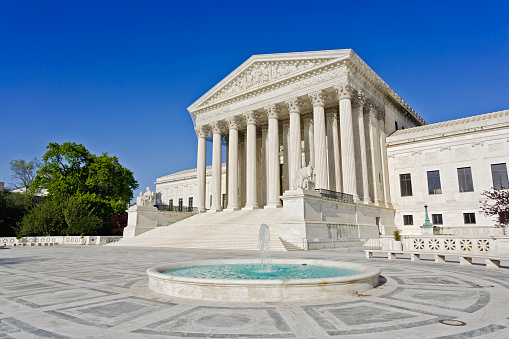They’re called “faithless electors” — members of the Electoral College who refuse to vote for the presidential candidates they said they’d support.
And in a change from its usual partisan, conservative/liberal split on election issues, the Supreme Court appeared on Wednesday to be ready to allow, even encourage, states to ban them.
Hearing arguments and asking questions by phone from self-isolation because of the Covid-19 pandemic, justices in what’s sometimes called the “pragmatic” wing of the court appeared to shelve their partisan leanings. The other wing, the “formalists,” are a minority among the nine justices.
“Justice Ruth Bader Ginsburg said people become electors by pledging to support a candidate. What troubled her, Ginsburg said,” was the idea that an elector “made a promise to do something, but that promise is unenforceable,” reports the Associated Press.
There were 10 faithless electors from both parties in the 2016 presidential race: four in Washington state, two in Texas and one each in Hawaii and Colorado, plus two Democratic electors in Maine and Minnesota who were replaced when they said they wouldn’t vote for Hillary Clinton, the popular-vote winner.
The Campaign Legal Center, which supports campaign finance and redistricting reforms, warned in a legal filing that should the high court rule that electors are free agents, it could lead to “presidential campaigns and outside groups” giving “large sums of money” — essentially, bribes — “to crucial or wavering electors,” the AP says.
Justice Samuel Alito warned that faithless electors could trigger “chaos.”
“If an election were close, and faithless electors are allowed to do whatever they want, the losing political party would likely launch a campaign to influence electors,” reports Vox.
“The result would be months of uncertainty about who actually won the presidential election. And the eventual ‘winner’ might be so tainted by a perception that they won through logrolling and skulduggery that many Americans would not accept that president as legitimate,” Vox says.
Justice Brett Kavanaugh appeared to side with Alito, citing what he called the “avoid chaos principle of judging” — that is, if a case is a close call judges should choose the less chaotic outcome.
No high court decision is likely until mid-summer.



